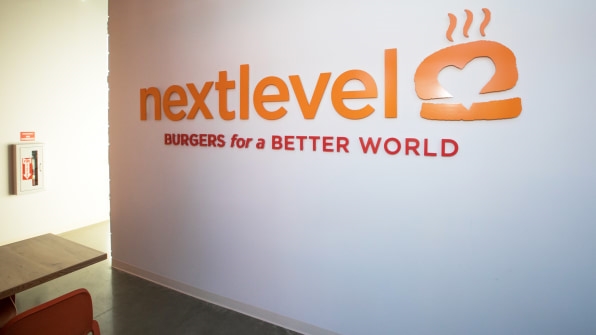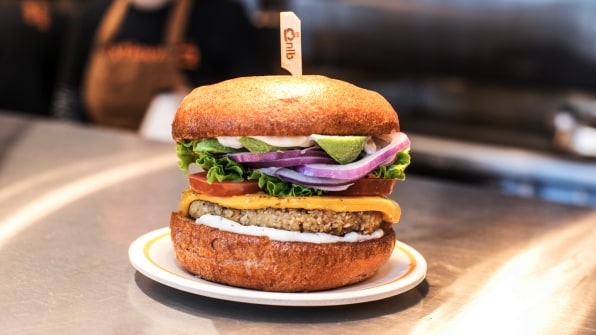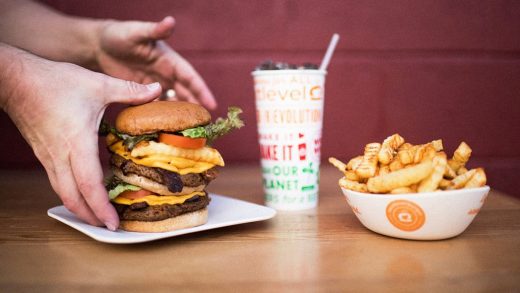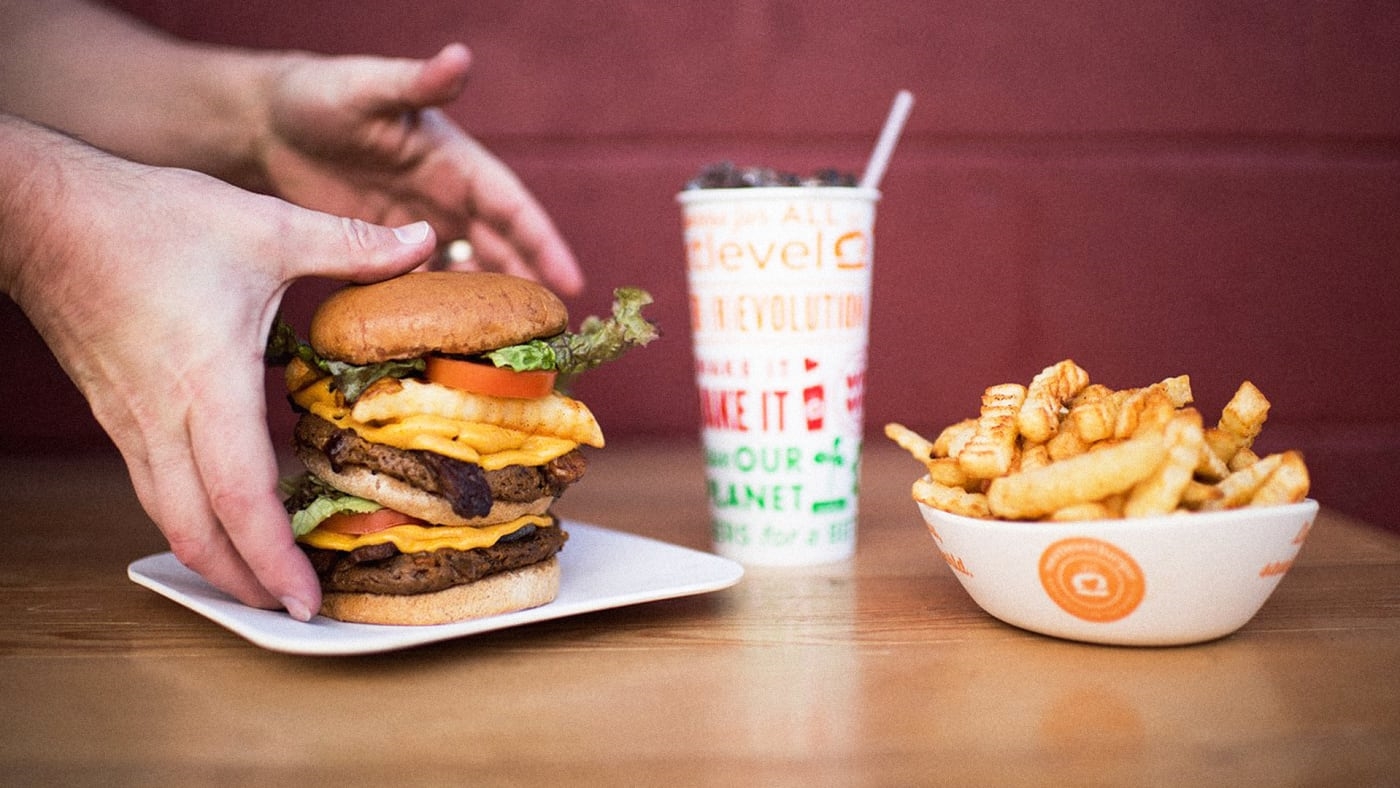More proof that the future of fast food is meat-free
Walking past Next Level Burger, a new restaurant that will open in San Francisco’s Potrero Hill neighborhood on Friday, it isn’t immediately obvious that it’s not a typical fast food restaurant. But if you walk inside, someone will inform you that everything on the menu is plant-based.
The vegan burger joint is the seventh location of a chain that launched in Bend, Oregon in 2014, and one example of a growing number of plant-based fast food chains.

Veggie Grill, a vegan fast-casual chain founded in 2005, now has more than 30 locations. By Chloe, which first opened in Manhattan in 2015, now has six locations in New York and expanded to four other cities, including London. Last year, a former Burger King near San Diego became the second location of Plant Power Fast Food, which will open two more restaurants this year. North of San Francisco, the vegetarian and organic Amy’s Drive Thru is making plans to expand nationally.
A food industry report in 2017 identified “going meat-free” as one of the top trends in the industry; veganism, while still rare, increased 500% in the U.S. between 2014 and 2017. And even omnivorous Americans increasing want to reduce their meat and dairy consumption. “I think two factors–personal health and sustainability–are really what’s driving this awareness and demand for plant-based [food],” says Next Level Burger CEO and co-founder Matt de Gruyter. At the restaurants, the bestseller is a house-made mushroom and quinoa patty, though the company also sells the Beyond Burger for customers who want a more meat-like experience.

De Gruyter, a former steak-lover who used to work in the oil and gas industry, may be an unlikely champion of veganism. But after dealing with family health issues, he and his wife shifted to a plant-based diet, and then decided to take the risk of opening the restaurant. Alex Payne, one of Twitter’s first engineers, happened to be an early customer and decided to invest in the business, which then expanded to Portland, Oregon. In Portland, an executive chef from Whole Foods discovered the restaurant and connected the chain to the grocery store. Five of the chain’s seven locations, including the new restaurant in San Francisco, are inside Whole Foods stores. The next will open in Austin this fall.
Now, de Gruyter aims to open 1,000 locations before 2024. “You’ve got to be a little bit crazy to try and reinvent the all-American burger joint, but from the beginning, that has been our goal,” he says. He believes that the days of the McDonald’s of the world are numbered, unless the company changes; in McDonald’s stores in the U.S., the company is already struggling to increase customer visits.
The trend toward more vegan fast food is likely to continue. “People are becoming more informed,” says de Gruyter. “The more informed they are, the more positive action they’re taking, and you’re starting to see this shift toward companies like Next Level Burger, I believe, and we want to be as big a part of that as we can. Not because it’s some market opportunity, but at this point, I think it’s a moral obligation. That’s how I wake up every day: How are we going to make the world a better place?”
(57)



